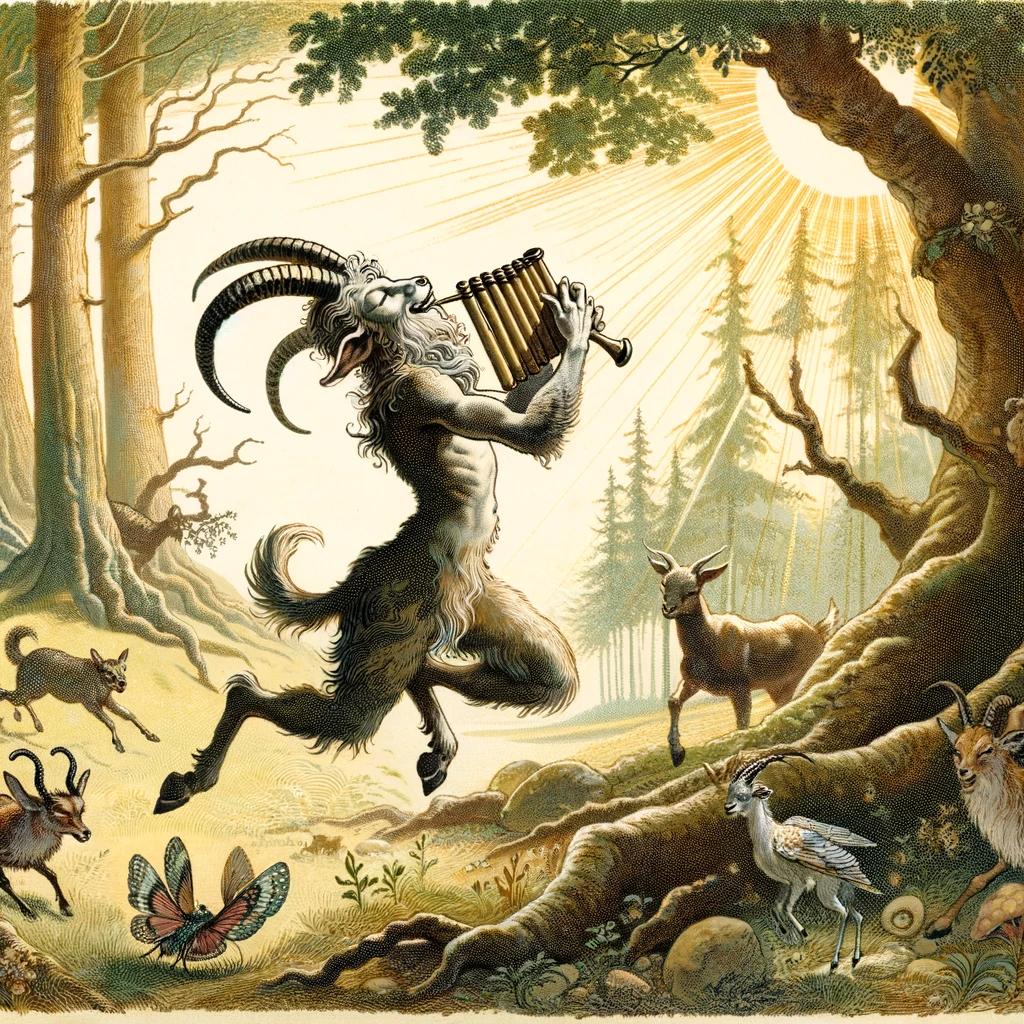Clio Greek Mythology: Unveiling the Ancient Tales

Clio, in Greek mythology, is one of the nine Muses and represents the art of history. She is the daughter of Zeus and Mnemosyne, and her role is to inspire and celebrate famous events.
Clio lived with the Muses on Mount Parnassus or Helicon and was associated with artistic creativity. She is also believed to be the mother of Hymenaeus and Hyacinthus. This article explores the fascinating stories of Clio and her place within Greek mythology.
Stay tuned for a deeper dive into the world of Clio Greek mythology and its significance.
Overview of Greek Mythology
Welcome to the captivating world of Greek mythology! This ancient belief system is filled with fascinating tales of gods, goddesses, heroes, and mythical creatures. Greek mythology served as the foundation for ancient Greek culture and greatly influenced their art, literature, and religion.
These legendary stories were passed down through generations, providing explanations for the mysteries of the world.
Greek mythology is a rich tapestry of narratives that explore the creation of the world, the lives of deities, and the epic adventures of heroic figures.
The tales are replete with themes of love, betrayal, honor, and power. From Zeus, the king of the gods, to the beautiful Aphrodite adored for her charm, and the mighty Hercules known for his incredible strength, Greek mythology encompasses a vast array of characters and stories.
Throughout history, Greek mythology has continued to captivate audiences and inspire countless works of literature, art, and popular culture. Its enduring legacy resonates in our modern society, as we still reference and explore these ancient stories to better understand our own human nature and the world around us.
Join us as we embark on a journey to unravel the intriguing tales of Greek mythology and discover the timeless wisdom within.
The Goddess Aphrodite: Origins and Symbolism
Explore the captivating origins and profound symbolism of the goddess Aphrodite, revered for her association with love, beauty, and fertility.
Birth of Aphrodite and Associations with Love and Fertility
According to Greek mythology, Aphrodite emerged from the sea foam created when Uranus’ genitals were cast into the ocean.
This striking birth narrative links her deeply with the concepts of passion, desire, and sexual love. As the goddess of fertility, Aphrodite holds immense influence over the natural world, granting abundance and procreation.
Artistic Representations and Cult of Aphrodite
In early Greek art, Aphrodite was depicted clothed, but during the 5th century BC, sculptures portrayed her in all her naked splendor, as seen in the renowned statue of Aphrodite of Cnidus.
The nude representation symbolized her power and allure. The cult of Aphrodite spread across Greece, with primary centers of worship in Paphos, Amathus, and Corinth. Her association with Eros, the Graces, and the Hours emphasized her role in promoting fertility and sensual love.
Connections with Other Deities and Cultures
Aphrodite’s influence reached beyond Greek mythology, as she was often linked with deities from the Ancient Near East, such as Ishtar and Astarte. This connection reflects the cultural exchange between Greece and the surrounding regions.
Aphrodite’s symbols, including the dove, pomegranate, swan, and myrtle, further illustrate her diverse associations with love, beauty, and fertility.
Clio, the Muse of History: An Introduction
In the fascinating realm of Greek mythology, Clio emerges as a prominent figure, embodying the art of history and memory. As one of the nine Muses, Clio holds an esteemed position, inspiring artists, poets, and historians alike.
Let us explore the lineage, attributes, and legendary tales surrounding this muse.
Lineage and Attributes of Clio
Clio, daughter of Zeus, the king of the gods, and Mnemosyne, the goddess of memory, inherits a rich heritage. As the muse of history, Clio symbolizes the power of remembrance and the preservation of past events.
She is often depicted holding an open scroll, signifying the recording and transmission of knowledge across generations.
Role of Clio as a Muse and Inspirer of Artistic Creation
Clio’s influence extends beyond the realm of history. As a muse, her presence encourages creativity and artistic expression. She inspires poets, playwrights, and writers, guiding them in their quest to encapsulate the essence of historical events in their works.
Clio’s inspirational prowess has shaped the foundations of literature throughout the ages.
Possible Offspring and Associated Legends
The progeny of Clio adds another layer to her mythical persona. According to legends, she is believed to be the mother of Hymenaeus and Hyacinthus. Hymenaeus, the god of weddings, represents the celebration of union, while Hyacinthus symbolizes the fleeting nature of beauty and the tragic ending of youth.
These tales surrounding Clio’s offspring accentuate her diverse and profound influence on various aspects of life.
Aphrodite and Clio: A Comparison
In examining the Greek mythology figures Aphrodite and Clio, it becomes evident that they possess contrasting roles and domains within the ancient pantheon. While Aphrodite reigns over love, beauty, and fertility, Clio assumes the mantle of history and its preservation.
Let’s explore their distinctive attributes, their interactions with other gods and mortals, as well as their historical significance and cultural impact.
Contrasting Roles and Domains
Aphrodite, known as the goddess of love, encompasses romantic and passionate connections. She inspires desire, affection, and the pursuit of physical pleasure. On the other hand, Clio, the muse of history, focuses on knowledge, documentation, and the recounting of past events.
Their realms, emotions, and influences diverge as Aphrodite rules the realm of the heart, while Clio dominates the realm of the mind.
Interactions with Other Gods and Mortals
Aphrodite’s alluring presence often resulted in romantic entanglements with both gods and mortals. Her notable liaisons include the passionate affair with Ares, the god of war, as well as mortal lovers like Anchises and Adonis.
In contrast, Clio remains primarily detached from personal relationships, as her dedication lies in recording and celebrating historical achievements rather than engaging in personal exploits.
Historical Significance and Cultural Impact
Aphrodite’s significance in Greek culture extended beyond her influence over love and beauty. As her worship spread throughout Greece, her association with fertility made her a powerful deity invoked for bountiful harvests and successful unions.
Moreover, her connection to other goddesses such as Ishtar and Astarte indicates the cross-cultural impact she had in the ancient world.
Clio’s role, on the other hand, contributed greatly to the preservation of historical memory and artistic inspiration.
Through her presence, she empowered poets, writers, and historians to immortalize significant events and personages. Clio’s influence on ancient Greek literature and historiography shaped the understanding of the past and laid the groundwork for future historical pursuits.
Overall, while Aphrodite captivated with her allure and romantic associations, Clio stood as the guardian of history and the muse of creative expression. Through their contrasting roles, these mythological figures left an indelible mark on ancient Greek culture and continue to inspire interest and fascination in the present day.
Frequently Asked Questions about Aphrodite and Clio
What Were Aphrodite’s Symbols and Associations?
Aphrodite, the Greek goddess of love, beauty, and fertility, was associated with various symbols that represented her divine essence. Some of her most prominent symbols include:
- The Dove: A universal symbol of love and peace, the dove exemplified Aphrodite’s nurturing and compassionate nature.
- The Pomegranate: As a symbol of fertility and abundance, the pomegranate represented Aphrodite’s role in bringing forth new life.
- The Swan: Known for its elegance and grace, the swan symbolized Aphrodite’s allure and beauty.
- The Myrtle: As a sacred plant associated with love and marriage, the myrtle signified Aphrodite’s role in promoting lasting relationships.
How Did Clio Impact Ancient Greek Literature and Historiography?
Clio, the Muse of History, held significant influence over ancient Greek literature and historiography.
She inspired and guided poets, writers, and historians in their quest to document and preserve historical events. Through her inspiration, Clio played a vital role in the development of historical narratives, fostering a deeper understanding of the past and shaping cultural identity.
Her presence ensured that the stories of great individuals and significant events would be remembered for generations to come.
What Are Some Lesser-Known Facts about Aphrodite and Clio?
Despite being prominent figures in Greek mythology, there are a few lesser-known facts about Aphrodite and Clio that may pique your interest:
- Aphrodite’s Birth: While Aphrodite’s most widely recognized origin story involves her emerging from the sea foam, other accounts claim she was the daughter of Zeus and Dione.
- Clio’s Musical Talent: Beyond her role as the Muse of History, Clio was also known for her musical abilities, specifically with the flute.
She would use her musical talents to enhance the creative process and inspire artists in various fields.
- Aphrodite’s Divine Offspring: In addition to her well-known children, Eros and Aeneas, Aphrodite had numerous divine and mortal offspring, each with their own unique stories and roles in Greek mythology.
- Clio’s Connection to Lyric Poetry: Clio’s influence extended beyond historical documentation.
She was also closely associated with lyric poetry, a genre that blended emotions, personal experiences, and historical events into melodious verses.
Explore these intriguing facets of Aphrodite and Clio to gain a deeper appreciation for their roles in Greek mythology and their lasting impact on various aspects of culture and art.
Unveiling the Influence of Aphrodite and Clio Today
Aphrodite’s Relevance in Contemporary Love and Beauty Standards
Aphrodite, the Greek goddess of love and beauty, continues to hold significance in modern society. Her influence can be seen in the realm of love and relationships, where her ideals of passion, desire, and physical beauty still resonate.
Aphrodite’s representation of love as a powerful and transformative force has influenced societal expectations and perceptions of romantic relationships.
In today’s world, Aphrodite’s image and symbolism are often associated with beauty standards.
As the epitome of physical attractiveness, her timeless allure reminds us of the pursuit of aesthetics and the cultural emphasis placed on external appearances. From fashion to advertising, Aphrodite’s influence can be observed as a pervasive force shaping modern ideals of beauty.
Clio’s Legacy in Historical Research and Education
Clio, the muse of history, leaves a lasting legacy in the realm of historical research and education. Her presence continues to inspire scholars and historians to delve into the annals of the past, seeking to understand and interpret the events that have shaped our world.
Clio’s essence is embedded in the quest for knowledge and the preservation of historical narratives.
Within educational settings, Clio’s influence is evident in the study of history, where her presence serves as a constant reminder of the importance of storytelling and the exploration of diverse perspectives.
By studying and immortalizing the stories of the past, Clio motivates us to learn from our collective history and apply those lessons to the present.
Pop Culture References and Adaptations
Aphrodite and Clio’s enduring presence in Greek mythology has found its way into popular culture in various forms. Films, literature, music, and art often incorporate references to these iconic figures, captivating audiences with their timeless tales.
From movies like “Troy” and “The Immortals” to literary works like Madeline Miller’s “The Song of Achilles” and Rick Riordan’s “Percy Jackson” series, Aphrodite and Clio continue to capture the imagination of contemporary storytellers.
Their stories serve as a source of inspiration, offering a rich tapestry for artists to explore and reinterpret.
Moreover, Clio’s association with historical research has made her a symbol in the world of academia.
Countless books, articles, and scholarly papers bear her name, honoring her role as the muse of history and the pursuit of knowledge.
- Modern love and beauty standards are influenced by Aphrodite’s ideals of passion and physical attractiveness.
- Clio’s legacy lies in her impact on historical research, education, and the preservation of stories from the past.
- Aphrodite and Clio’s stories continue to inspire pop culture, appearing in films, literature, music, and art.
.




















